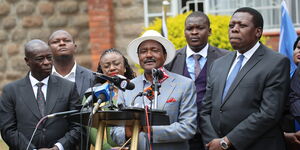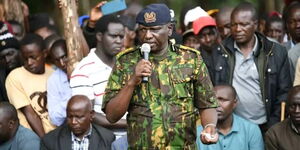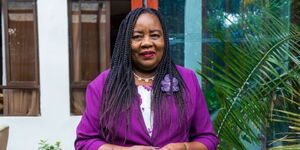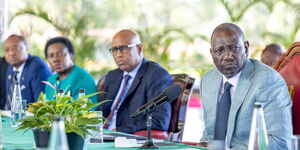For far too long, the African continent has demanded permanent seats, with full veto rights, at the powerful United Nations Security Council (UNSC) without success.
Instead, African countries have been resigned to settle for three non-permanent seats on a rotational basis, with Kenya sitting at the UNSC on three separate occasions, each on a two-year term.
Still, the permanent seats have proved to be elusive, with the P5 (Permanent Five) (United States, United Kingdom, Russia, China, and France) limiting the African continent from permanent representation.
Critics have argued that the restriction of the permanent UNSC seats to the P5 has created a power monopoly, as proposed reforms on the structure of the P5 can only be done by P5 members themselves.
Any enlargement or creation of new permanent seats requires amending the UN Charter, which needs approval by two-thirds of the General Assembly and ratification by all five permanent members.
However, according to UN Resident Coordinator to Kenya Stephen Jackson, all is not lost for Kenya and other African nations in the quest to get UNSC permanency.
Speaking at a local TV station on Wednesday, November 18, Jackson revealed that the global order is shifting and that sooner or later, the Global North may need to align itself with the growing influence of the Global South, particularly in the structure of the UN.
According to Jackson, Africa will not get permanent UN Security Council seats through the goodwill or "open-mindedness" of the current P5 members alone.
What Needs to be Done
To get the permanent seats at the UNSC, Jackson stated that Africa needed to keep knocking on the door and maintain a unified, relentless advocacy towards its goal of permanent seats at the UNSC.
“The demand must never be dropped, because one day the demographic, economic, and geopolitical reality will become so glaring that the P5 will face a stark choice: either open up the Council or watch the entire UN system lose relevance and be sidelined,” noted Jackson.
This could be done through a renewed push for the Ezulwini Consensus and Sirte Declaration, which outlined Africa’s demands for at least two permanent UNSC seats with veto powers and two additional non-permanent African seats.
This demand has been supported by virtually all 54 African states but encountered opposition from most of the P5 and some other powerful countries.
Another strategy proposed by Jackson was to leverage the growing influence of multilateralism, where he noted that by growing Africa’s voice in other global fora, its bargaining power would increase at the UN.
He opined that this could be done through the African Union, BRICS, G77, and other Global South platforms.
The effect of this would be that in current high-stakes UN-led negotiations, Africa holds strong, unified positions, and the Global North would need Africa's agreement. He cited the ongoing negotiations for a UN Framework Convention on International Tax Cooperation, currently in Nairobi, where the Global South is seeking a revision of fiscal policies that are deemed to burden developing countries.
Jackson said that success and unity in these ‘below-the-radar’ but existentially important forums on tax, climate, debt, and digital governance would give Africa real leverage today. By winning there, Africa makes the Global North gradually realise that excluding 1.4 billion people from the top table is unsustainable, forcing the Global North to head back to the drawing board.
Back in September 2025, President William Ruto blasted global leaders for sidelining Africa from global decision-making, particularly criticising the make-up of the UNSC and demanding two permanent seats for Africa at the Council.
Speaking during the General Assembly Debate at the United Nations headquarters in New York, Ruto warned that Africa would no longer accept being treated as an observer on issues that directly impact its people and future.
The United Nations Security Council is responsible for maintaining international peace and security by preventing conflicts, responding to threats, and authorising collective action. It can impose sanctions, deploy peacekeeping missions, and make binding decisions that all UN member states must follow.












